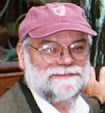Recently RJ Sigmund, in his weekly digest of fracking issues, discussed the danger of fracking to fresh water supplies. Sigmund states:
Thirsty wells: Fracking consumes billions of gallons of water - Drillers in Ohio have used more than 4 billion gallons of water to frack horizontal shale wells since 2011. That’s a lot of water. Enough to fill one two-liter soda bottle for every person on the planet; or in terms that motorists in shale country can relate to, 800,000 tanker-loads of water. The state surpassed the thousand-well mark in August. A Repository review of water usage reported by drillers to FracFocus, a national fracking-chemical registry, as of Sept. 12, shows:
- • Of the first 1,031 Utica and Marcellus shale wells drilled, FracFocus listed the amount of water used to frack 662.
- • Water use for all 1,031 wells could approach 6.7 billion gallons, based on average water-use rates per county.
- • Chesapeake Energy used 2 billion gallons on 411 reported wells.
- • Three wells in Ohio topped 17 million gallons.
- • Average water usage was 6.1 million gallons.
- • Fracking could consume more than 10 billion gallons of water if all current well permits are drilled.
- • Some wells used more water than what drillers estimated on permit applications.
How can this water usage be done in Geauga County without endangering the water supply to every single Geauga household, business, and factory?
Sigmund also discusses fracking waste-water and injection wells. These further endanger the water supply in our area--permanently, in light of average human lifespans. This is short-term gain (the fracking money, which makes a few people very wealth), and long-term disaster.
Here is what Sigmund writes about Beautiful Ohio, injection waste-water capital of America:
Ohio is cited in GAO report for fracking waste disposal - Drilling – Ohio -- Only Ohio allows fracking waste disposal without advance disclosure of chemical contaminants. : The federal Government Accountability Office (“GAO”) released a new report ( http://www.gao.gov/products/
This has to stop. We have to stop it!
p.s. About 35 years ago I heard the great folksinger and Perry County native Jean Ritchie sing the song "Black Waters." The song was then sung about the impact of coal mining on the water in Eastern Kentucky streams and rivers. That same song can be sung today in areas affected by fracking. It seems we have learned nothing. We are making the same mistakes over and over again.
Jean Ritchie sings "Black Waters" in the following video:
Jean Ritchie sings "Black Waters" in the following video:

















































